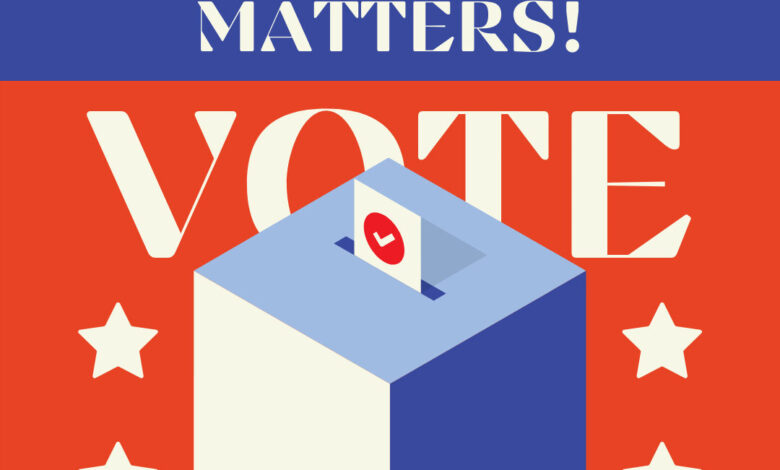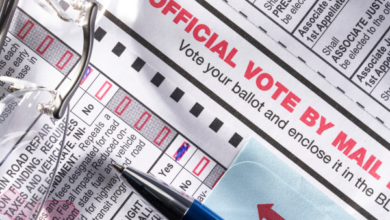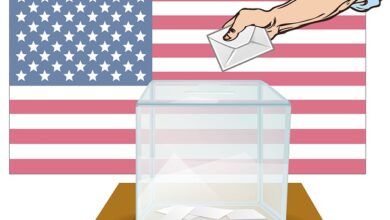Demystifying the Democratic Process: A Guide to Understanding Various Types of Elections

Introduction
Elections are a cornerstone of modern democracy. They allow citizens to elect their representatives and leaders, and to shape the direction of their society.
In addition, Elections are one of the main pillars of democracy. If there are no elections, there would be no government at all. Citizens have a right to vote, which allows them to elect their representatives to make decisions and laws that affect their lives.
However, there are different types of elections, and understanding the differences between them is crucial to understand how democracy works. Elections are formal processes through which eligible voters select candidates or propositions and decide on their representation or policies.
Importantly, Elections may also be classified based on their level, scope, frequency, or outcome. The most common classification of elections is based on their purpose or function.

General Elections
General elections are perhaps the most common type of election. They are held at regular intervals, and allow citizens to elect their representatives to national or regional governing bodies.
In the United States, for example, general elections are held every two years for the House of Representatives, and every six years for the Senate. The winner of the general election is determined by a simple majority of the votes cast.
In addition, General elections are popular throughout the world. Elections are held for most government officials, including presidents, mayors, and members of congress. The winners are chosen by the voters, who elect one candidate from each political party in their district.
Moreover, If the winner has a majority of the vote, he or she will be elected. Elections are held regularly in most parts of the world. The candidates’ names will appear on the ballot in the general elections. A president, senator, or member of parliament may be re-elected.
However, If the majority of the voters in a country vote against a politician, the person may be defeated in the next election. In some countries, the people also vote directly for a prime minister or president.
Importantly, This may change the government. If the voters decide to replace the current government, a new election may be held. For example, the French people were asked if they wanted to keep the Socialist Party or the National Front in power.

Primary Elections
Primary elections are important in determining the candidates that will be chosen in the general election. You should vote for those candidates that you think will make good choices as president.
In addition, The primary elections are held every two years and give voters a chance to decide who they want to support. You should vote in the primaries if you want to have the chance to be elected president. The primary elections are usually open only to members of your political party.
However, In most states, you need to be a member of the party you want to represent to vote in the primary elections. If you want to change parties, you should consider switching parties during the primary elections. Voting in the primary elections is important because it gives you the opportunity to vote for the candidates of your choice.
Importantly, If you aren’t happy with the candidates your party has chosen, you may want to consider switching parties. You may find that the party you are voting for has better ideas than the one you voted for last time.
Further, You may want to switch parties to be able to vote for the candidate you prefer. If you are interested in becoming president of your country, you should vote for candidates of your party.

Special Elections
When an elected official resigns, dies, or is removed from office, he or she will have to leave a vacancy. Special elections are held to fill the vacancies. A special election is similar to an election, but there are certain rules that are different from regular elections.
In addition, A special election usually happens after an election is over. There is a waiting period before a special election can be held. A special election can occur within 60 days of an election. When a special election is held, it has to be held within the same state.
Further, There are three ways in which a special election can be held. You can hold a special election using one of the two forms of the General Election law. You can hold a special election using the Special Primary Law.
Moreover, You can also hold a special election using the Special Convention Law. If you use one of these laws to hold a special election, it is known as an election to fill a vacancy.
Importantly, If a state is redistricting its congressional districts, the governor will call a special election to fill vacant seats. The winner of the special election is known as a “special” or a “special” election.

Referendums
Referendums are a way of letting people decide what happens in their country. A referendum is an important way to let people express their opinions on a policy or issue.
In addition, This is important to make sure that governments listen to their citizens. In the United States, citizens can participate in referendums to make changes in laws, policies, and government agencies. This allows them to have a voice in the decision-making process.
For instance, a citizen may want to know whether he should support a new law that he feels would benefit him. He can do this by going to a polling place and voting for a proposition.
This means that the person who is going to propose the law has to get enough signatures to get it on the ballot. Once the petition is approved, the government will conduct a referendum, and the people will be asked to vote on it.
However, Referendums are usually done during elections, because the people can decide to change a law right away if they think that the law is bad. Sometimes, the people can even overturn a law if they don’t like the way it is being implemented. Referendums are not necessarily about government.

Runoff Elections
Most elections that involve a runoff have only two candidates. When a runoff occurs, the candidate with the highest vote total wins the election.
For example, consider the 2016 U.S. presidential election. No candidate received a majority of the votes in the primary election. That meant that the top two vote getters faced off in the general election. Donald Trump won the election with just over 50% of the popular vote. In the United States, primaries usually occur in February, and the general election takes place on November 8.
In addition, The Electoral College was established in the early 1800s, to decide who would be president in the United States. The Electoral College was created in order to prevent a national crisis that occurred in the 1790s. In that year, the Federalist Party and Democratic-Republican Party were fighting for the presidency. After four ballots failed to result in a winner, the Congress decided to hold the election.
Further, But because of some errors, the final tally did not match the number of electoral votes for each party. Because of this, no candidate received a majority of the votes. A compromise was reached between the parties, and Thomas Jefferson became the first president of the United States.

Recall Elections
Recall elections are conducted in order to remove an elected official from office. Usually, a petition is signed by a certain number of eligible voters and verified by an election official.
In addition, Recall elections may be primary, general, or standalone, depending on the rules and procedures of each state or country. Recall elections are most commonly used in order to remove an elected official who has failed to perform his/her duties.
Further, Recall elections are held in order to avoid having an unqualified person assume a public office. A recall election can be conducted in either the primary or general election year.
Moreover, Recall elections are not used to replace the incumbent with another person. In the United States, recall elections are generally used to remove state legislators, but they have also been used to remove local officials such as a city council or school board.
Importantly, Some states, including Massachusetts and Connecticut, have recall provisions for the state legislature. Recall elections have also been conducted against state judges.
In most states, recall elections can only be initiated by registered voters. In some states, recall elections can only be initiated by individuals who have served the full term of the official to be recalled.

Conclusion
Elections come in many different types, each with its unique characteristics and purpose. General elections allow citizens to elect their representatives, while primary elections are used to select candidates.
In addition, Special elections fill vacancies, while referendums allow citizens to vote on specific issues. Runoff elections are used when no candidate receives a majority of votes.
However, Understanding these types of elections is crucial to understanding how democracy works, and how citizens can participate in the political process.



